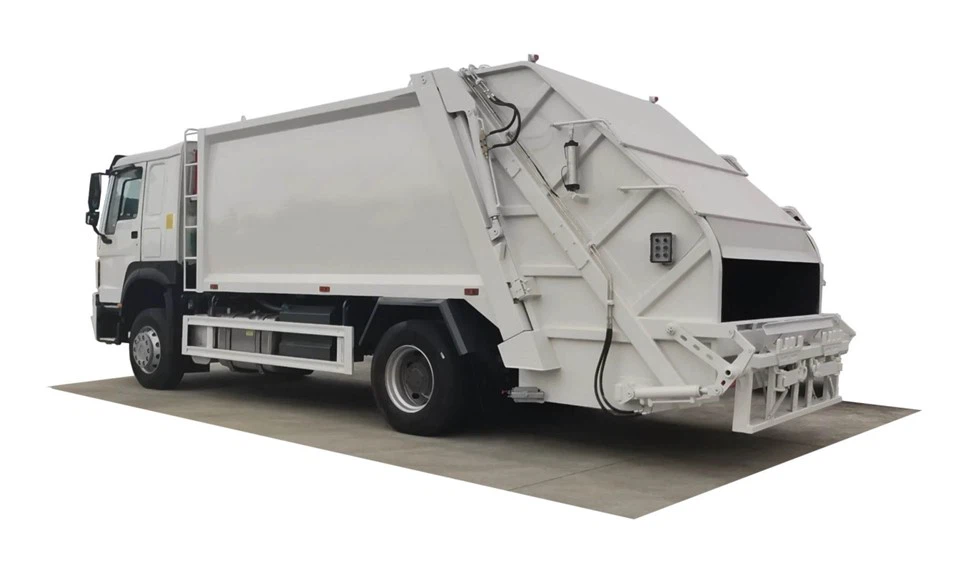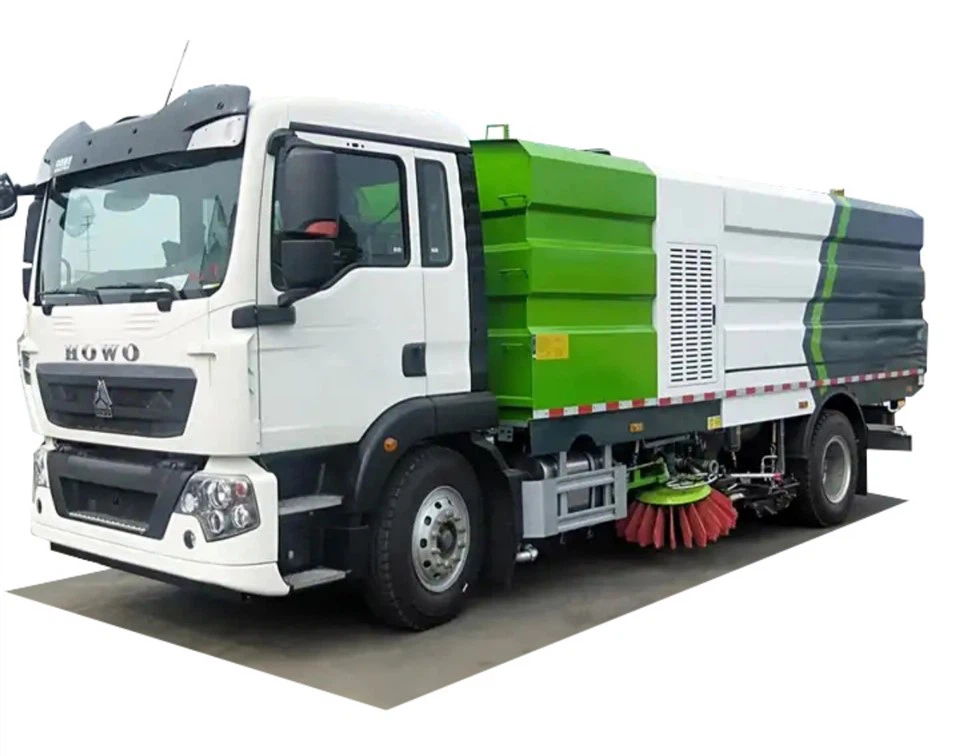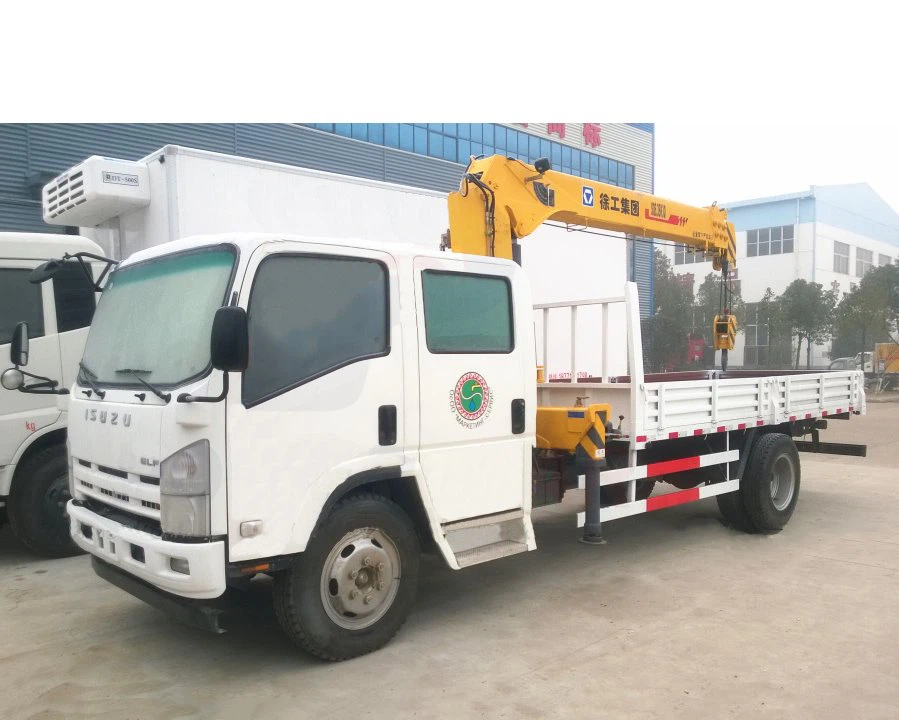Oil Tanker Truck for Sale: Your Complete Guide to Purchasing the Right Vehicle

Introduction
In the world of transportation, oil tanker trucks play a critical role in the delivery of petroleum products, including gasoline, diesel, and other liquid fuels. If you’re considering entering this industry, purchasing an oil tanker truck is a significant investment that requires careful consideration. This guide will provide you with all the necessary information about finding the ideal oil tanker truck for sale, covering the features, costs, maintenance, and more. Whether you’re a business owner, a fleet manager, or just an individual looking to buy, this article will serve as your comprehensive resource.
Understanding Oil Tanker Trucks

What is an Oil Tanker Truck?
An oil tanker truck is a specialized vehicle designed for the safe and efficient transportation of oil and other liquid bulk products. These trucks consist of a large tank mounted on a chassis, allowing them to carry large volumes of liquid. They are equipped with safety features, such as pressure relief valves and spill containment systems, to prevent accidents during transportation.
Types of Oil Tanker Trucks
There are several types of oil tanker trucks, each designed for specific purposes:
- Bulk Liquid Tankers: These are used for transporting large volumes of crude oil and refined products.
- Fuel Tankers: Designed specifically for transporting fuels, these trucks often come equipped with specialized pumping and metering systems.
- Vacuum Tankers: Used for transporting liquids, solids, or sludge, vacuum tankers employ suction to draw materials from a source.
- Reefer Tankers: These can maintain a controlled temperature, making them suitable for transporting products that require refrigeration.
Key Features to Look for in an Oil Tanker Truck
Tank Capacity
The capacity of the tank is one of the most crucial factors, influencing both your operational efficiency and profitability. Standard capacities range from 1,000 to 11,600 gallons. Choose a tank size that aligns with your transportation needs and local regulations.
Material and Construction
Oil tanker trucks are typically made from steel or aluminum. Steel offers durability but can add significant weight, which may affect fuel efficiency. Aluminum, on the other hand, is lighter and offers better corrosion resistance. Consider these factors when choosing the material.
Safety Features
Safety is paramount in transporting hazardous materials. Here are some essential safety features to consider:
- Anti-lock Braking Systems (ABS): Improves vehicle stability and control during braking.
- Spill Containment Systems: Helps prevent environmental contamination.
- Fire Suppression Systems: Reduces the risk of fire in case of an accident.
Engine & Performance
The engine’s power and efficiency can significantly impact your operating costs. Look for:
- Engine Size: Generally, larger engines provide better performance but may result in higher fuel consumption.
- Fuel Efficiency: Modern engines offer better fuel economy, saving you money in the long run.
Regulatory Compliance
Ensure that the oil tanker truck complies with local and federal regulations. This includes emissions standards, safety inspections, and other legal requirements to avoid fines and legal issues.
Cost Considerations When Buying an Oil Tanker Truck
Initial Purchase Price
The price of an oil tanker truck can range widely based on its type, age, size, and features. On average, expect to spend anywhere from $30,000 to over $200,000. Budget accordingly and consider financing options if necessary.
Additional Costs
Beyond the purchase price, several additional costs may arise:
- Insurance: It is crucial to have appropriate insurance coverage for your tanker truck.
- Maintenance: Regular maintenance is vital for safety and performance.
- Registration and Licensing: Factor in these costs as you plan your budget.
Where to Find Oil Tanker Trucks for Sale
Online Marketplaces
The internet offers various platforms to find oil tanker trucks for sale, including:
- eBay: A well-known platform for buying both new and used vehicles.
- TruckPaper: Specializes in commercial vehicles, including oil tankers.
- CommercialTruckTrader: Offers a wide variety of tankers from different dealers.
Local Dealerships
Consider visiting local dealerships that specialize in commercial trucks. They may have new and used tanker trucks available and can provide valuable insights into the purchasing process.
Auctions
Government and industry auctions can also be a great place to find oil tanker trucks for sale at competitive prices. However, always inspect the vehicle thoroughly before bidding.
Tips for a Successful Purchase
Inspect the Vehicle
Before purchasing, conduct a comprehensive inspection of the tanker truck. Look for signs of wear, rust, or damage, and check the tank’s interior condition. If necessary, hire a qualified mechanic for a professional evaluation.
Check the Vehicle History
For used vehicles, obtain a vehicle history report that outlines its maintenance record, previous ownership, and any reported accidents. This information will help you assess the truck’s reliability.
Negotiate the Price
Don’t hesitate to negotiate the price. Understand the market value and use any issues identified during the inspection as leverage to lower the cost.
Consider Warranty Options
Warranties can provide peace of mind and protect your investment. Check if the truck comes with a warranty or consider purchasing an extended warranty for used trucks.
Evaluate Financing Options
Examine various financing options available to you, including loans, leases, or installment payments. Find a solution that aligns best with your financial situation.
Maintenance Tips for Your Oil Tanker Truck

Regular Inspections
Schedule regular inspections to ensure that all systems, including brakes, tires, and lights, are functioning correctly. This helps prevent accidents and prolongs the vehicle’s lifespan.
Fluid Checks
Regularly check all fluids, including oil, coolant, and hydraulic fluids, as they play critical roles in maintaining performance and preventing breakdowns.
Cleaning the Tank
Ensure that the interior of the tank is clean and free from contaminants. Regular cleaning is essential for safe and effective transportation of oil products.
Tire Maintenance
Regularly check tire pressure and tread depth. Properly maintained tires improve fuel efficiency and minimize risks of blowouts.
Frequently Asked Questions (FAQ)
1. How can I finance the purchase of an oil tanker truck?
Financing options vary, including loans from banks, leasing programs, or commercial truck financing specialists. Compare rates and terms to find the best option for your budget.

2. Are oil tanker trucks expensive to insure?
Insurance costs vary based on factors like the truck’s value, your driving record, and the type of cargo transported. Expect higher premiums due to the nature of the materials being transported.
3. What licensing do I need for an oil tanker truck?
To operate an oil tanker truck, you’ll typically need a Commercial Driver’s License (CDL) and may require additional endorsements specific to hazardous materials.
4. What should I look for during an inspection?
Check for tank integrity, signs of rust, the condition of safety features, and overall vehicle performance. Don’t forget to review maintenance records.
5. How often should I perform maintenance on my oil tanker truck?
Implement a regular maintenance schedule based on your truck’s manufacturer recommendations and the mileage. Regular inspections help reduce the likelihood of costly repairs.
6. Can I modify my oil tanker truck after purchasing it?
Yes, modifications may be possible, such as upgrading safety features or improving fuel efficiency. Ensure that any modifications comply with local regulations.
